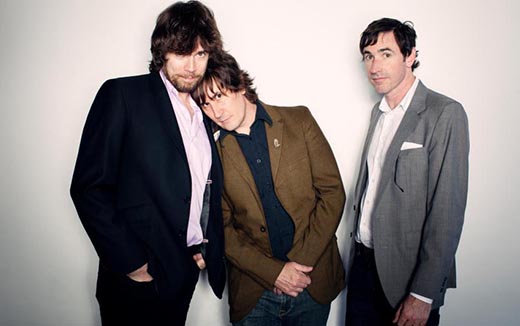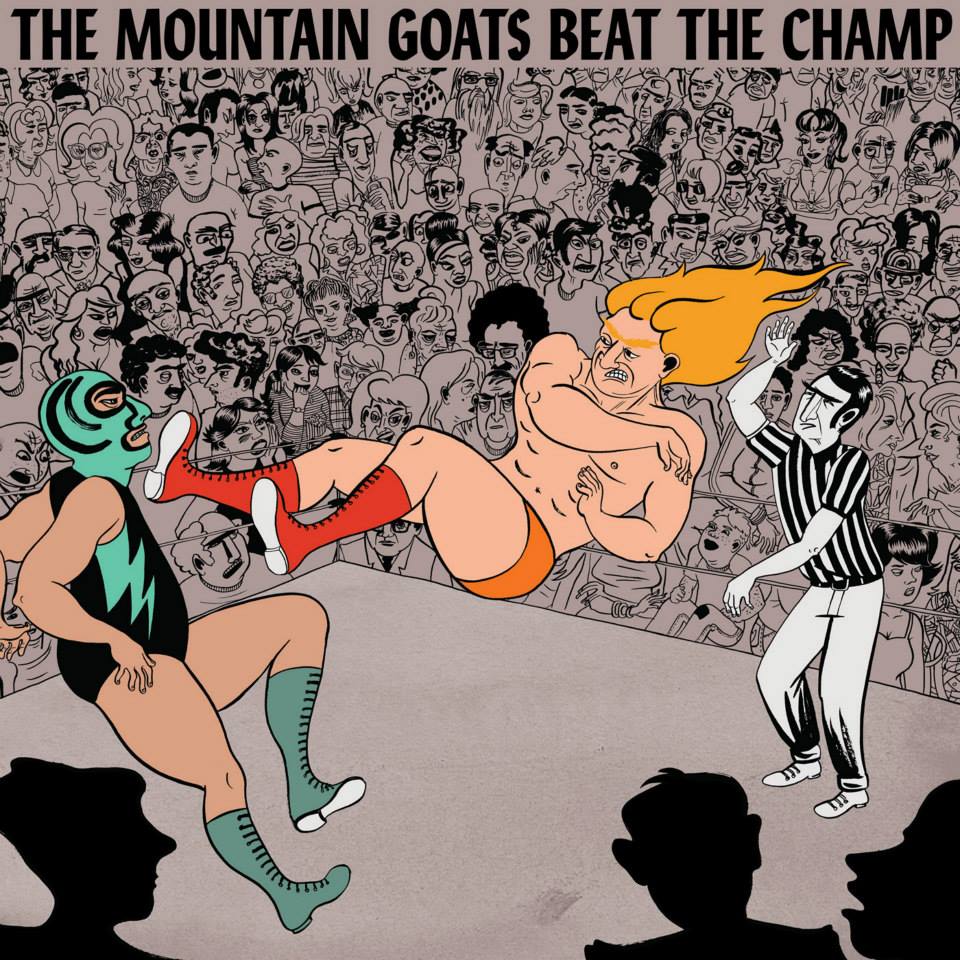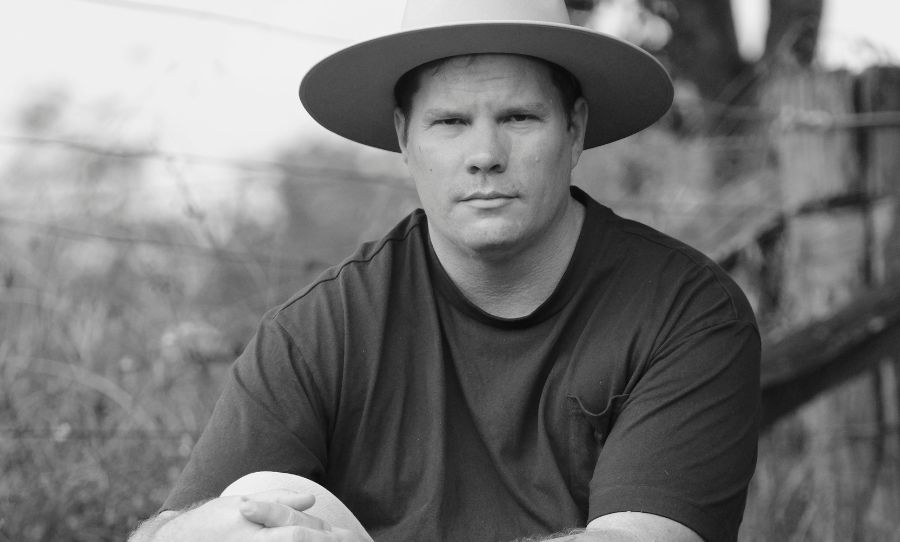It was 11:30pm on a weeknight as I lay in bed contemplating my options. I had already drunk a six pack of cheap Mexican beer and further indulgence would likely result in a undesirable hangover. Reading is an estimable pastime that I try not to do after ingesting alcohol. The frustration of returning to a book you read while drunk is much like returning to life after being drunk; newly formed predicaments with minimal explanation. If it were 1978 and I a young John Darnielle, now the inimitable front man of The Mountain Goats, I may have already been glued to a grainy television set watching two grown men walk the tightrope of potentially crippling simulated violence that was “resling”.
It is not and I will never be. I decided against a lonely interaction with the internet and instead pressed play on my mobile phone’s music player. Less than a minute into Southwestern Territory, the opening track of Beat the Champ, I was filled with an overwhelming feeling that I had made the best possible decision.
The Mountain Goats step into the ring with their latest concept album Beat The Champ, John Darnielle’s impeccable songwriting earning the spotlight.
A Pro Wrestling concept is not a particularly obvious choice for a new Mountain Goats album; nor is it an obviously good one. Wrestling has waned in popularity since fighting sports started offering cage matches with real violence and the drama that it offers today is more or less on par with a bad soap opera. However, in his album announcement Darnielle acknowledges this and pleads “You can’t trust much, but you can trust the Mountain Goats”. If one artist should be trusted with seemingly impossible concepts it is Darnielle. Past successes include All Eternals Deck, centred around a set of fictional tarot cards, and The Life of the World to Come where each song is inspired by a biblical verse. Dangerous ground to be on sure; which was navigated with skill, intensity and a certain degree of abandon.
Darnielle’s deft aim hits the mark here too; piercing a rich vein of pathos that a lesser writer would have overlooked. When Darnielle sings “Nearly drive Denny’s nose back into his brain, all the cheap seats go insane” his voice telegraphs his play. There is an enormous amount of conflict present in this material. Conflict between the guilt the character feels for his action and the adulation he receives for it. Conflict between who these people were on a stage and who they were in their personal lives. Conflict between the desire to fight and perform and the will to survive.
The poignancy concealed within these dilemmas lie in their universality. When Darnielle stretches his voice to breaking point and near yells “Nameless bodies in unremembered rooms” it is apparent he sees himself in the same plight as his characters. How could an artist not; more importantly how could a human not. No matter the size of the stage that one performs on, the performance itself shrinks as the memories that hold it dwindle. The flipside to this dour assertion is that the show goes on in its frail, flawed human glory. Beat the Champ never lets you forget this and that ensures it lands a flurry of triumphant blows even when its characters appear all but spent.
This brings us to the cast of characters that populate the album; and what a cast it is. Almost every song makes reference to real life wrestlers and the events that defined them as performers and people. The lead single chronicles the life and times of Chavo Guerrero as seen through the eyes of an adoring fan (John Darnielle). It is an emphatic celebration of a legendary, yet mostly forgotten, figure and his legacy. Luna is about the mental fortitude and bravery of female wrestler Luna Varchon and her battle with inner demons that eventually led to a tragic drug overdose at only 48. Stabbed to Death Outside San Juan tells the unsettling story of Bruiser Brody who was killed in a locker room scuffle with a fellow wrestler/booker.
Other songs such as the incredibly moving Heel Turn 2 are less focused on specific events and more about the emotional baggage of the profession in general. The narrating character heartbreakingly struggles with his decision to become a heel (a villainous wrestler): “Throw my better self overboard, shoot at him when he comes up for air. Come unhinged, get revenge. I don’t want to die in here”. Once again the conflict inherent in the situation is palpable and Darnielle harnesses it brilliantly in his vocal delivery.
The music itself is at times a real departure for the Mountain Goats. There are still the tried and tested acoustic guitar and piano ballads that Darnielle has proved himself a master of. However, the ferocious double kick powered Werewolf Gimmick is new territory that succeeds in transporting the listener into a wrestling arena that is ready to explode. The tender piano solo at the end of Heel Turn 2 is also surprising but proves equally captivating.
Beat the Champ could have been a train wreck of an album. It could have been painfully idiosyncratic and weighed down by the specificity of its content. It is not. Darnielle had managed to craft a work of enormous empathy and appeal. The forgotten wrestlers of yesteryear have the chronicle that they deserve. The rest of us are lucky enough to have the privilege of watching ringside.
FIND OUT MORE ON





